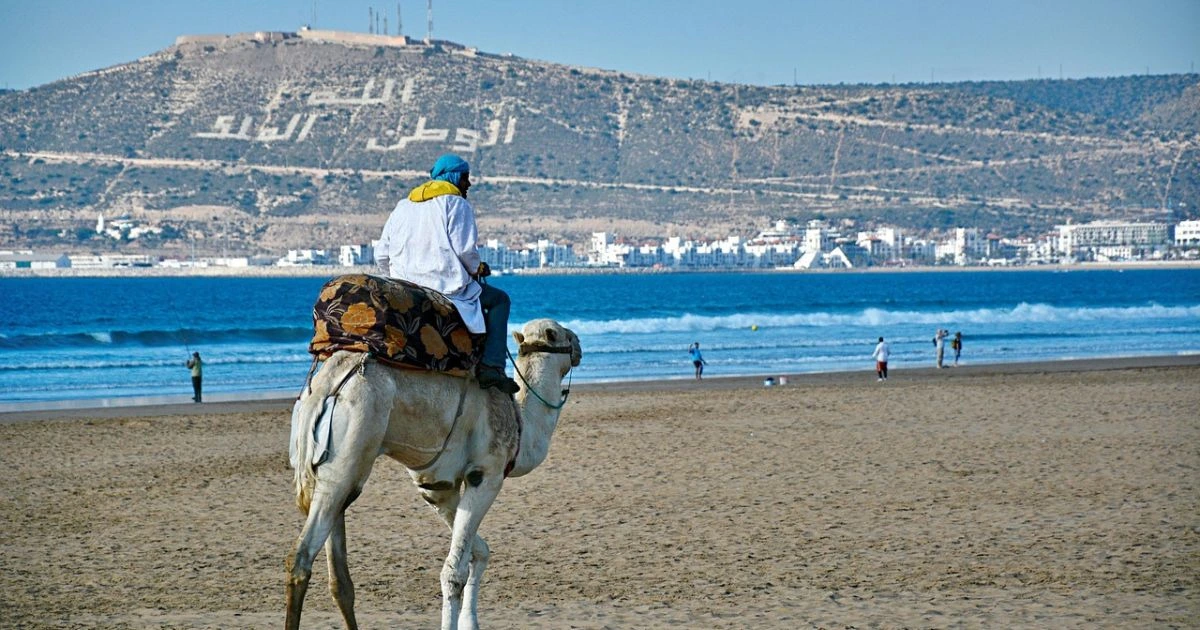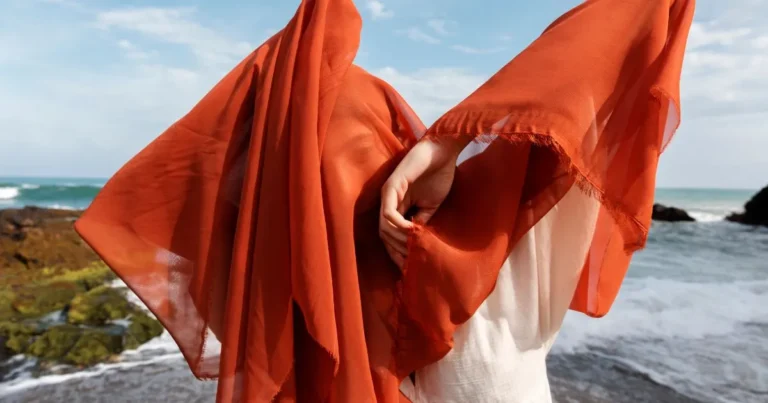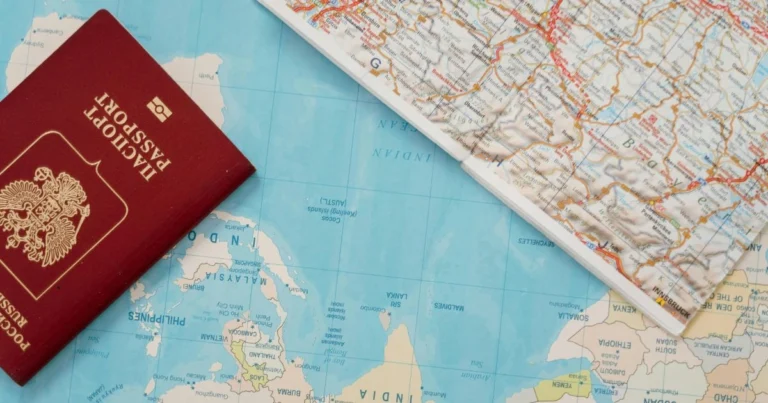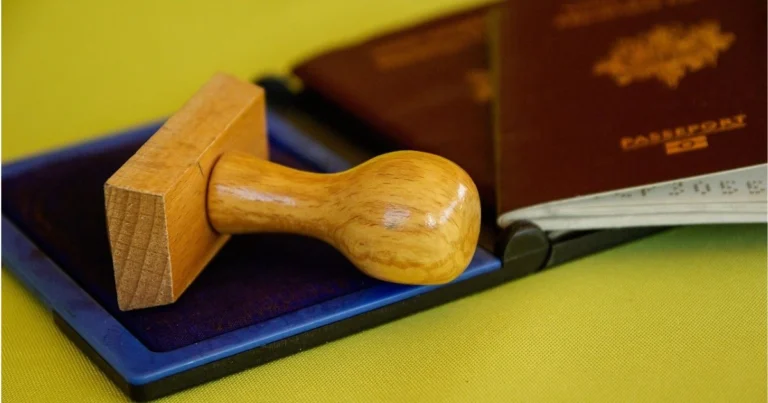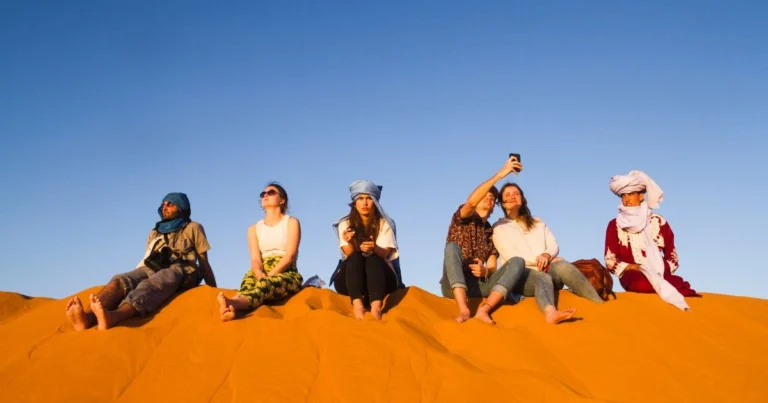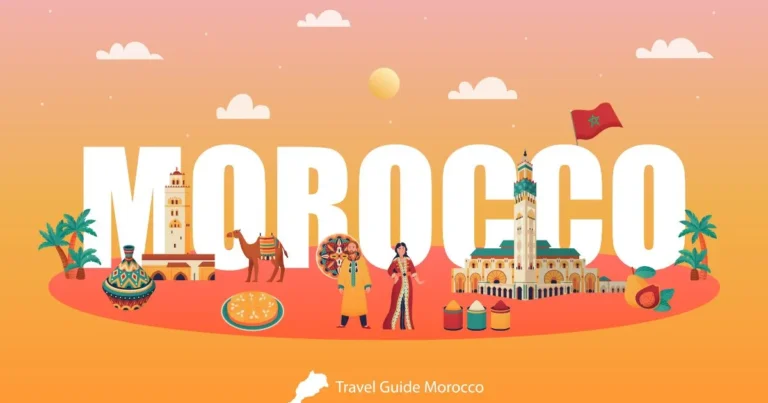The Ultimate Guide to Travelling Through Morocco: Safety, Culture, and Adventure Await
Table of Contents
Introduction: Dispelling Myths and Embracing the Magic
Picture this: You’re sipping mint tea in a centuries-old riad courtyard, the intricate geometric patterns of traditional zellige tiles catching the golden afternoon light, while the distant call to prayer echoes through the narrow medina streets. This is travelling through Morocco – a journey that transforms you with every step, smell, and sound.
Yet, many potential travelers hesitate, asking themselves: “Is Morocco safe?” It’s a valid question that deserves an honest, comprehensive answer. According to the Global Peace Index 2024, Morocco ranks 72nd out of 163 countries – positioned as a moderately safe destination that welcomes over 13 million international visitors annually.
Travelling through Morocco means far more than checking off tourist sites; it’s about immersing yourself in a living tapestry of Berber, Arab, and French influences. Whether you’re navigating the bustling souks of Marrakech, trekking through the Atlas Mountains, or camping under the stars in the Sahara Desert, Morocco offers experiences that engage all your senses.
This comprehensive guide addresses every concern you might have about Morocco travel tips, from safety protocols and cultural etiquette to transportation options and hidden gems. By the end, you’ll have all the tools needed to plan an unforgettable Moroccan adventure with confidence.
Planning Your Trip: The Essentials
Best Time to Visit
Morocco’s diverse geography means timing varies by region and activity:
Spring (March-May): Ideal weather across the country
- Pros: Mild temperatures, blooming landscapes, fewer crowds
- Cons: Occasional spring rains in the north
Autumn (September-November): Perfect for most activities
- Pros: Comfortable temperatures, clear skies, harvest season
- Cons: Popular season means higher prices
Summer (June-August): Best for coastal areas
- Pros: Perfect beach weather, mountain trekking season
- Cons: Extreme heat inland (can exceed 45°C/113°F)
Winter (December-February): Excellent for southern regions
- Pros: Pleasant temperatures in desert areas, snow sports in Atlas Mountains
- Cons: Cold and wet in northern cities
Ramadan Considerations: During this holy month, expect modified restaurant hours and cultural sensitivity requirements. Many establishments close during daylight hours, but the evening iftar celebrations offer unique cultural experiences.
Visa Requirements
Morocco maintains a relatively open visa policy:
Visa-Free Countries (90 days): USA, Canada, EU countries, UK, Australia, Japan, and many others
Visa Required: Check the official Moroccan Ministry of Foreign Affairs website for current requirements
Entry Requirements:
- Passport valid for at least 6 months
- Return ticket or proof of onward travel
- Sufficient funds for your stay
Budgeting Your Moroccan Adventure
| Travel Style | Daily Budget (USD) | Accommodation | Meals | Activities |
|---|---|---|---|---|
| Backpacker | $25-40 | Hostels, basic riads | Street food, local cafes | Self-guided tours, hiking |
| Mid-Range | $50-80 | Boutique riads, 3-star hotels | Mix of local and tourist restaurants | Guided tours, desert trips |
| Luxury | $150+ | 5-star hotels, luxury riads | Fine dining, hotel restaurants | Private guides, premium experiences |
Money-Saving Tips:
- Practice price negotiation in souks by making your first offer approximately 30% of what’s initially asked
- Use CTM buses for reliable, affordable transport
- Eat where locals eat for authentic, cheap meals
- Book riads directly to avoid commission fees
Essential Packing List
Beyond standard travel items, Morocco-specific essentials include:
Clothing:
- Modest, loose-fitting clothes for cultural respect
- Light layers for temperature variations
- Comfortable walking shoes with good grip
- Sandals for beach areas and riads
- Light scarf (serves multiple purposes)
Tech & Practical:
- Universal adapter (Type C and E plugs)
- Portable power bank (long travel days)
- Headlamp or small flashlight
- Reusable water bottle with filter
- Cash in small denominations (dirhams)
Health & Comfort:
- Sunscreen (SPF 30+) and sunglasses
- Personal first aid kit
- Hand sanitizer and wet wipes
- Insect repellent
- Toilet paper (not always available)
Travel Insurance: Your Safety Net
Travel insurance isn’t just recommended for Morocco – it’s essential. Key coverage areas:
Medical Coverage: Minimum $100,000 for medical emergencies Evacuation: Important for remote areas like the Sahara Trip Cancellation: Protects your investment Adventure Sports: If planning hiking, camel trekking, or surfing
Recommended Providers:
- World Nomads (comprehensive adventure coverage)
- SafetyWing (digital nomad-friendly)
- Allianz Travel (established, reliable service)
Learning Basic Arabic Phrases
Although French is commonly used, knowing some Arabic expressions creates connections and shows respect:
| English | Arabic | Pronunciation |
|---|---|---|
| Hello | السلام عليكم | As-salamu alaykum |
| Thank you | شكرا | Shukran |
| Please | من فضلك | Min fadlik |
| How much? | بكم؟ | Bikam? |
| Where is…? | أين…؟ | Ayna…? |
| I don’t understand | لا أفهم | La afham |
| Help | مساعدة | Musa’ada |
Berber (Tamazight) Basics:
- Hello: Azul
- Thank you: Tanmirt
- Goodbye: Ar tufat
Safety and Security: Addressing Core Concerns
Current Safety Situation
Is Morocco safe? The straightforward truth: Morocco is typically safe for visitors, with crime statistics below those of numerous European countries. However, like any travel destination, awareness and preparation are key.
Official Travel Advisories (2024):
- US State Department: Level 2 (Exercise Increased Caution)
- UK Foreign Office: Generally safe with standard precautions
- Canadian Government: Exercise normal security precautions
The main safety issues involve pickpocketing, scams aimed at tourists, and occasional political protests in city centers rather than violent crime.
Common Scams and How to Avoid Them
The “Fake Guide” Scam:
- How it works: Welcoming locals volunteer to give you a tour, then insist on compensation.
- Prevention: Only hire licensed guides through official channels
- Response: Politely decline and walk away confidently
The “Closed Today” Scam:
- How it works: Someone tells you your destination is closed, offers alternative
- Prevention: Verify information independently
- Response: Thank them and check yourself
The “Ring Trick”:
- How it works: Someone “finds” a ring near you, offers to share the reward
- Prevention: Recognize this classic distraction technique
- Response: Keep walking without engaging
Carpet Shop Pressure:
- How it works: Excessive hospitality leading to high-pressure sales
- Prevention: Set boundaries early, don’t feel obligated
- Response: “I’m not buying anything today” and maintain that boundary
Transportation Safety
Trains (ONCF): Safest Option – Modern, punctual, comfortable
- Book first-class for longer journeys
- Secure belongings during stops
- Women-only compartments available
Buses:
- CTM: Government-run, reliable, air-conditioned
- Supratours: Private, good for tourist routes
- Local buses: Budget option but can be crowded
Rental Cars:
- Pros: Flexibility, access remote areas
- Cons: Aggressive driving culture, parking challenges
- Advice: Skip nighttime driving, rely on GPS navigation, and pack an emergency kit.
Taxis:
- Grand Taxis: Shared, for intercity travel
- Petit Taxis: City use, insist on meter
- Red flags: Drivers who refuse the meter, claim it’s broken
Health and Medical Advice
Recommended Vaccinations:
- Routine vaccines (MMR, DPT, flu)
- Hepatitis A and B
- Typhoid (if eating street food)
- Consider rabies if extensive rural travel
Common Health Issues:
- Traveler’s diarrhea: Affects 20-40% of visitors
- Dehydration: Especially in desert regions
- Sunburn: High altitude and desert reflection intensify UV
Medical Care: Private clinics in major cities offer good care. Public hospitals vary in quality.
Emergency Contacts:
- Police: 19
- Fire/Ambulance: 15
- Tourist Police: 0537 688058
- US Embassy Rabat: +212 537 637 200
- UK Embassy Rabat: +212 537 633 333
Safety for Specific Demographics
For women travelers: Morocco offers relative safety, though cultural sensitivity is key
- Dress modestly (cover shoulders, knees, cleavage)
- Expect some attention; confident body language helps
- Consider women-only train compartments
- Join female traveler groups on social media for tips
Solo Travelers:
- Stay in social accommodations (riads, hostels with common areas)
- Share itineraries with someone at home
- Trust your instincts about people and situations
- Carry emergency contacts and embassy information
LGBTQ+ Travelers: Morocco’s laws criminalize same-sex relations, though enforcement varies:
- Exercise discretion with public displays of affection
- Research LGBTQ+-friendly accommodations
- Connect with local LGBTQ+ organizations for advice
- Consider major cities over rural areas
Transportation Options for Travelling Through Morocco
Trains: The Comfort Choice
Morocco’s ONCF railway network connects major cities efficiently:
Popular Routes:
- Casablanca-Rabat: 1 hour, frequent departures
- Rabat-Fez: 2.5 hours, scenic countryside
- Casablanca-Marrakech: 3 hours, comfortable journey
- Tangier-Fez: 4 hours, crosses diverse landscapes
Booking Tips:
- Reserve seats online at ONCF Connect
- First-class worth the upgrade for long journeys
- Bring snacks and water
- Download offline entertainment
Buses: Budget-Friendly Coverage
CTM (National Bus Company):
- Modern fleet with air conditioning
- Fixed schedules and prices
- Online booking available
- Connects cities trains don’t reach
Supratours (ONCF’s Bus Division):
- Complements train network
- Tourist-friendly routes
- Higher comfort level
- Slightly more expensive than local operators
Local Bus Companies:
- Very economical
- Limited comfort and reliability
- Good for short distances
- Language barrier possible
Rental Cars: Freedom and Flexibility
Pros:
- Access remote Atlas villages
- Flexible timing and routes
- Cost-effective for groups
- Luggage security
Cons:
- Aggressive local driving style
- Parking challenges in medinas
- Navigation complexity
- Higher accident risk
Driving Tips:
- International Driving Permit required
- Comprehensive insurance essential
- Avoid night driving
- Carry emergency supplies
- Use established rental companies (Avis, Hertz, Europcar)
Taxis: Urban Navigation
Petit Taxis (City Taxis):
- Different cities use distinct taxi colors (red in Casablanca, beige in Fez)
- Metered rates required by law
- Maximum 3 passengers
- No intercity travel allowed
Grand Taxis (Shared Taxis):
- Usually old Mercedes sedans
- 6 passengers typical
- Intercity and regional routes
- Negotiate before departure
Taxi Apps:
- Careem: Available in major cities
- InDriver: Allows price negotiation
- Uber: Limited availability
Internal Flights: Time-Savers
When to Fly:
- Casablanca to Laayoune (saves 12 hours driving)
- International connections through Casablanca (CMN)
- Regional access to smaller destinations
Airports to Consider:
- Essaouira (ESU): Perfect for coastal access
- Ouarzazate (OZZ): Gateway to desert regions
- Al Hoceima (AHU): Northern coast access
Airlines:
- Royal Air Maroc: National carrier, extensive network
- Air Arabia Maroc: Budget option, limited routes
Itinerary Ideas: Sample Routes and Destinations
The Classic Circuit (10-14 Days)
Day 1-3: Marrakech
- Arrive: Menara Airport transfer
- Stay: Riad in Medina or Gueliz district
- Must-see: Jemaa el-Fnaa, Majorelle Gardens, Saadian Tombs
- Experience: Hammam spa treatment, cooking class
Day 4-5: Atlas Mountains
- Route: Day trip to Ourika Valley or overnight in Imlil
- Activities: Berber village visits, hiking, mountain scenery
- Accommodation: Mountain lodge or return to Marrakech
Day 6-8: Fez
- Transport: Train (comfortable 7-hour journey)
- Stay: Traditional riad in Fes el-Bali
- Highlights: Medina UNESCO site, Bou Inania Madrasa, tanneries
- Day trip: Meknes and Volubilis Roman ruins
Day 9-10: Chefchaouen
- Transport: Bus via Meknes (5 hours total)
- Stay: Blue-washed riad with mountain views
- Activities: Photography, hiking, relaxation
- Vibe: Mountain air, laid-back atmosphere
Day 11-14: Casablanca & Rabat
- Casablanca: Hassan II Mosque, Art Deco architecture
- Rabat: Royal Palace, Kasbah of the Udayas
- Departure: Mohammed V Airport
The Adventure Route (12-16 Days)
Marrakech → Dades Valley → Merzouga → Todra Gorge → Atlas Mountains
Highlights:
- 4WD desert excursions
- Camel trekking in Erg Chebbi
- Overnight in desert camp
- Rock climbing in Todra Gorge
- Atlas mountain treks
Best For: Active travelers, nature lovers, photographers
The Coastal Discovery (8-12 Days)
Casablanca to Rabat to Asilah to Tangier to Essaouira
Focus Areas:
- Atlantic coast beaches
- Surfing in Taghazout
- Portuguese coastal architecture
- Seafood cuisine
- Relaxed pace
The Cultural Immersion (14-21 Days)
Extended route including:
- Rural Berber villages
- Traditional craft workshops
- Homestay experiences
- Festival participation (if timing aligns)
- Language exchange opportunities
Cultural Considerations and Etiquette
Dress Code Guidelines
General Principles:
- Modesty shows respect
- Comfort in heat is important
- Practical for activities
For Men:
- Long pants preferred (shorts OK in tourist areas)
- T-shirts acceptable
- Tank tops only at beaches/pools
- Remove shoes entering homes/mosques
For Women:
- Cover shoulders and décolletage
- Pants/skirts below the knee
- Loose-fitting clothing preferred
- Headscarf for mosque visits
- Swimwear only at beaches/pools
Understanding Moroccan Customs
Hospitality Culture: Moroccans take pride in welcoming guests. Don’t be surprised by:
- Multiple rounds of mint tea
- Insistence on sharing meals
- Extended conversations with shopkeepers
- Invitations to family events
Bargaining Etiquette:
- Expected in souks and markets
- Start at 30-40% of asking price
- Remain friendly throughout
- Walking away often brings lower prices
- Cash payments preferred
Religious Considerations:
- Five daily prayer calls
- Friday is the holy day
- Ramadan affects daily routines
- Respect for Islamic practices
Effective Communication
Language Hierarchy:
- Arabic: Official language, appreciated effort
- French: Widely spoken, colonial legacy
- Berber/Tamazight: Indigenous languages
- English: Growing in tourist areas
Non-Verbal Communication:
- Right hand for eating and greetings
- Avoid showing sole of foot
- Modest gestures preferred
- Eye contact shows respect (same gender)
Navigating Ramadan
What to Expect:
- Restaurant closures during daylight
- Modified business hours
- Increased evening activity
- Festive iftar meals
Respectful Behavior:
- Avoid eating/drinking publicly during day
- Dress more conservatively
- Be patient with service delays
- Participate respectfully if invited to iftar
Tipping Guidelines
| Service | Tip Amount | Notes |
|---|---|---|
| Restaurants | 10-15% | If service charge not included |
| Cafes | 2-5 MAD | Small change for coffee/tea |
| Taxis | Round up | Or 5-10 MAD for longer trips |
| Hotels | 10-20 MAD/day | For housekeeping |
| Guides | 50-100 MAD/day | Official guides, half-day rates |
| Hammam | 20-30 MAD | For attendant services |
Food and Drink: A Culinary Journey
Must-Try Dishes
Tagine Varieties:
- Chicken with Preserved Lemons: Classic preparation
- Lamb with Prunes: Sweet and savory combination
- Vegetable Tagine: Perfect for vegetarians
- Fish Tagine: Coastal specialty with olives
Couscous (Friday Traditional): Steamed semolina served with vegetables and meat, traditionally eaten by hand
Pastilla (B’stilla): Flaky pastry filled with pigeon or chicken, almonds, and cinnamon – a perfect blend of sweet and savory flavors.
Harira Soup: A hearty tomato and legume soup with herbs that becomes especially prominent during Ramadan
Street Food Favorites:
- Msemen: Flaky pancake-like bread
- Chebakia: Honey-soaked sesame cookies
- Grilled sardines: Fresh from Atlantic coast
- Moroccan olives: Diverse varieties and preparations
Restaurant Recommendations by City
Marrakech:
- Al Fassia: Authentic tagines, female-run kitchen
- Le Jardin: Beautiful courtyard, international menu
- Jemaa el-Fnaa stalls: Evening food market experience
Fez:
- Restaurant Numero 7: Traditional atmosphere
- The Ruined Garden: Romantic garden setting
- Café Clock: Fusion cuisine, cultural events
Essaouira:
- Fish Market: Ultra-fresh seafood
- Taros: Rooftop dining with ocean views
- Chez Sam: Beachfront seafood specialist
Drinking Culture and Beverages
Alcohol Availability:
- Legal but culturally sensitive
- Available in tourist hotels and restaurants
- Local wine industry (Meknes region)
- Expect higher prices due to taxes
Traditional Beverages:
- Atay (Mint Tea): Social ritual, offered everywhere
- Fresh Orange Juice: Squeezed to order, very affordable
- Almond Milk: Sweet, creamy, often served warm
- Coffee: Turkish-style or French-influenced café au lait
Hydration Tips:
- Bottled water widely available
- Ice generally safe in tourist establishments
- Fresh juices usually safe from busy vendors
- Avoid tap water outside major hotels
Food Safety Guidelines
Low-Risk Options:
- Hot, freshly cooked meals
- Fruits you peel yourself
- Busy restaurants with high turnover
- Bottled beverages
Exercise Caution With:
- Raw vegetables and salads
- Dairy products
- Street vendor food (use judgment)
- Tap water and ice
Smart Eating Strategies:
- Follow the locals – busy places are usually safe
- Observe food preparation when possible
- Trust your instincts about cleanliness
- Carry basic stomach remedies
Accommodation Options: Where to Rest Your Head
Riads: The Authentic Experience
What Makes Riads Special: Traditional Moroccan houses built around central courtyards, often with fountains and gardens
Features:
- Intricate architectural details
- Rooftop terraces with city views
- Personalized service
- Cultural immersion
- Often family-run
Recommended Riads:
Marrakech:
- Riad Yasmine: Budget-friendly, great location
- La Mamounia: Luxury icon, celebrity favorite
- Riad Kniza: Boutique charm, excellent service
Fez:
- Riad Rcif: Panoramic medina views
- Palais Amani: Luxury resort-style riad
- Riad Laaroussa: Traditional elegance
Booking Tips:
- Book directly for better rates
- Confirm pickup arrangements
- Ask about rooftop access
- Read recent reviews carefully
Hotels: Modern Comfort
International Chains:
- Marriott, Hyatt, Ibis available in major cities
- Western standards and amenities
- Business facilities
- Pool and fitness centers
Local Hotel Groups:
- Atlas Hotels: Moroccan hospitality chain
- Kenzi Hotels: Mid-range comfort
- Onomo Hotels: Modern African luxury
Boutique Hotels: Combine international standards with Moroccan character
Camping: Under the Stars
Sahara Desert Camps:
- Luxury Camps: Permanent structures with bathrooms
- Traditional Camps: Berber tents with shared facilities
- Wild Camping: Basic but authentic experience
Atlas Mountains:
- Organized camping: With trekking companies
- Independent camping: Requires local permission
- Mountain refuges: Basic dormitory-style accommodation
What’s Included:
- Meals (usually dinner and breakfast)
- Camel trekking to camp
- Cultural entertainment (music, storytelling)
- Stargazing opportunities
Homestays: Living with Locals
Benefits:
- Authentic cultural exchange
- Home-cooked traditional meals
- Language practice opportunities
- Local insider knowledge
- Economic impact on communities
Arrangements:
- Through tour operators
- Online platforms (Airbnb, local sites)
- Direct contact with families
- Community tourism initiatives
What to Expect:
- Shared bathroom facilities
- Simple but clean accommodations
- Participation in daily activities
- Basic English or French communication
- Respect for family routines and customs
Conclusion: Your Moroccan Adventure Awaits
Travelling through Morocco offers an unparalleled blend of ancient traditions and modern accessibility. From the labyrinthine souks of Fez to the star-filled skies of the Sahara, from the blue-washed streets of Chefchaouen to the Atlantic waves of Essaouira, Morocco delivers experiences that linger long after you return home.
Key Takeaways for Safe, Enjoyable Travel:
Morocco presents manageable safety conditions when using common-sense travel practices
Cultural respect opens doors and creates meaningful connections
Flexible planning allows for spontaneous discoveries
Budget wisely – Morocco offers value at every price point
Remain open to chance encounters – they’re often the highlight of any journey
Your Next Steps:
- Choose your season based on activities and climate preferences
- Select your route – classic circuit, adventure focus, or coastal relaxation
- Book core accommodations – riads fill up quickly in peak season
- Learn basic phrases – even simple Arabic greetings make a difference
- Pack appropriately – comfort and cultural sensitivity combined
Ready to Start Planning?
Morocco isn’t just a destination; it’s a transformation waiting to happen. Whether you’re seeking adventure in the Atlas Mountains, cultural immersion in ancient medinas, or relaxation on pristine beaches, Morocco delivers beyond expectations.
Join the Conversation: Share your Morocco travel questions in the comments below, and don’t forget to subscribe for more destination guides and Morocco travel tips. Your adventure through this incredible kingdom starts with a single step – take it today!
Have you been travelling through Morocco? Share your experiences and favorite hidden gems in the comments to help fellow travelers discover the magic of this remarkable country.

